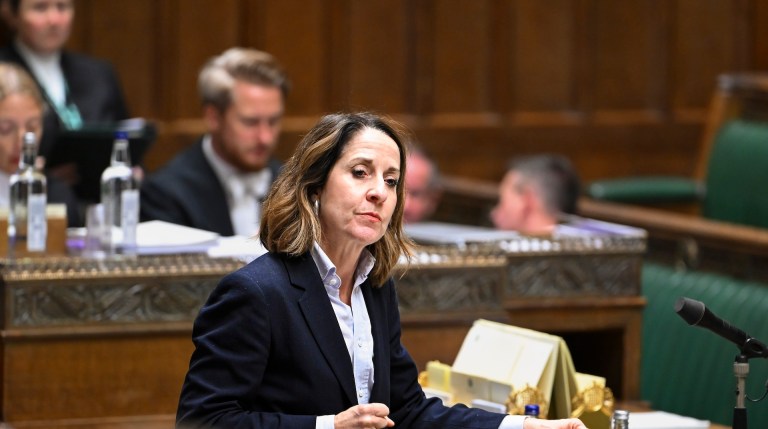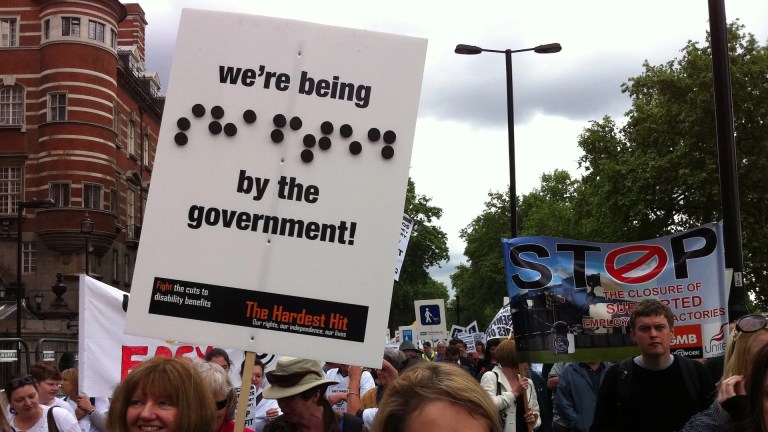A universal basic income has proven unpopular in Westminster with critics arguing that it is expensive and does little to boost employment and the economic inactivity that Labour has been struggling to shift.
But the idea’s champions argue giving everyone a universal payment and using the tax system to recoup money could be a better alternative to a growing benefits bill.
The idea is untested at national scale but there are existing pilots in the UK.
The Welsh government is currently operating a two-year study with more than 500 care leavers while there was a proposed basic income pilot in East Finchley and Jarrow in London.
In both trials, participants earn £1,600 per a month with no strings attached while academics test what it means for their lives. Results from both trials are currently under wraps.
Meanwhile, the Scottish government has been developing a minimum income guarantee for some time. Academics argued that a basic income was more efficient than a minimum income guarantee as it is provided first then taxed rather than being topped up when peoples’ income falls below a threshold.
Advertising helps fund Big Issue’s mission to end poverty
Basic income campaigners in Manchester have also looked to international examples to shape the proposal.
UBI Lab Manchester hosted an event with Mark Donovan, founder of the Denver Basic Income Project, last February. Donovan is currently running a pilot project in Denver involving homeless people, paying $10.8m (£8.7m) to over 800 people so far.
Donovan told attendees how the interim results of the pilot showed that homeless people receiving a regular and unconditional income were able to make significant positive changes to their lives, thanks to the financial security offered by the basic income.
“The time has been now for a long time,” Hawdale told the Big Issue.
“During Covid, we definitely pushed it because the idea of furlough is not that far from the idea of a basic income.
“Why it is gaining a lot of traction at the moment is because of AI. When I first came into this a few years ago to shout about ‘the robots are coming’ it didn’t get you anywhere, but since ChatGPT basically there has been an explosion of interest in there just might not be the jobs.”
Advertising helps fund Big Issue’s mission to end poverty
Now campaigners want Greater Manchester to be the next test bed, starting with hundreds of people experiencing homelessness in the city region.
Campaigners hope the cash would help provide people the financial security that could provide a platform to turn their lives around.
The pilot would run over two years, and would see each individual participant – not household – receive £1,600 per month. The cost for this would be £7.68m for 200 recipients, or £3.84m for 100 recipients.
The experts said the costs to run a pilot could be raised through a combination of central government support, public donations, reallocated service funding from the Greater Manchester Combined Authority and support from philanthropic organisations.
They also hope this will convince Burnham, who has vowed to make the case for the idea with Keir Starmer’s government, to take the idea to the Treasury.
The Labour government has targeted a shift towards prevention in its bid to reduce homelessness. Ministers have said they will spend £1bn tackling homelessness and rough sleeping in the next year with a significant increase in spending on prevention.
Advertising helps fund Big Issue’s mission to end poverty
Burnham has launched a “Housing First philosophy” in Greater Manchester, designed to use more preventative approaches to tackling homelessness and poverty as well as boosting wellbeing.
He wrote in his 2024 re-election manifesto: “The evidence from our Housing First pilot is that, if you set people up to succeed, the vast majority will and, in turn, that saves money on crisis provision in other public services.
“For this reason, we believe the logical next step, after the success of our Housing First pilot, is to bring forward a basic income pilot, as suggested by Compass. This would fit well with our new Live Well concept and would test whether a different, more preventative way of supporting people would lead to better use of public funds.”
The paper submitted to Burnham on Monday – titled Basic Income for Greater Manchester: Plans for a Feasible, Affordable and Popular Pilot – insisted a basic income could help further efforts to prevent people falling into crisis.
Campaigners previously met with the mayor to make the case for a basic income ahead of his re-election last year.
One of the report’s authors, Eliott Johnson, a vice chancellor’s fellow in public policy at Northumbria University, told the Big Issue that focusing on people experiencing homelessness in Manchester offers the chance to show a “proof of concept” for the idea.
Advertising helps fund Big Issue’s mission to end poverty
But, ultimately, he sees the need for a basic income to be much more universal.
“I think in that post-pandemic, we have a complete sea change in opinion about what we need to provide everyday people,” said Johnson.
“Suddenly, people who never considered that they might have to rely on the welfare system were exposed to it. So we’re in a completely new world.
“I think one thing about Manchester and the devolution deal it has is that it enables quite significant progressive policy making potentially to be made. And I think Andy Burnham understands that.”
Do you have a story to tell or opinions to share about this? Get in touch and tell us more. Big Issue exists to give homeless and marginalised people the opportunity to earn an income. To support our work buy a copy of the magazine or get the app from the App Store or Google Play.










